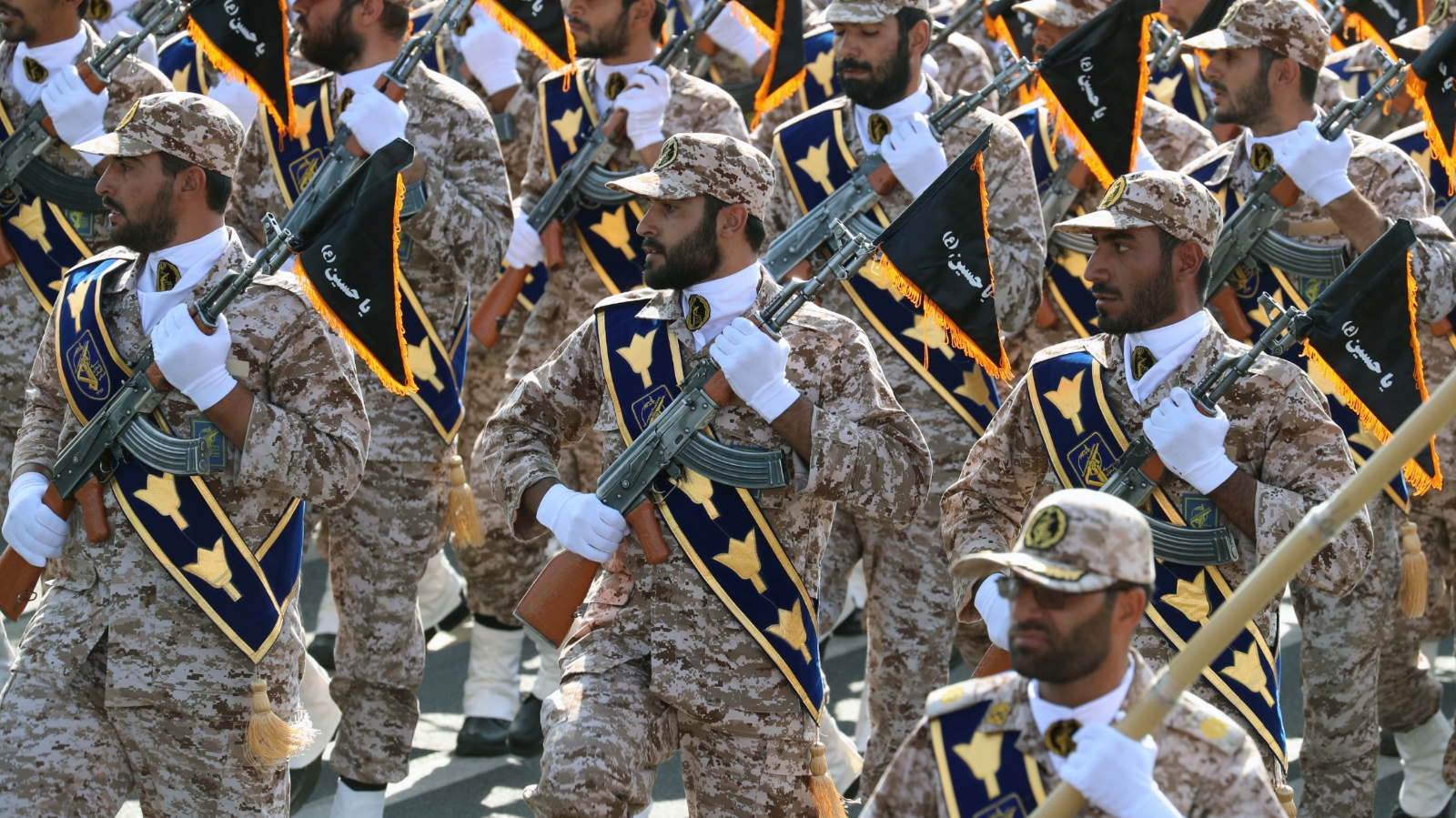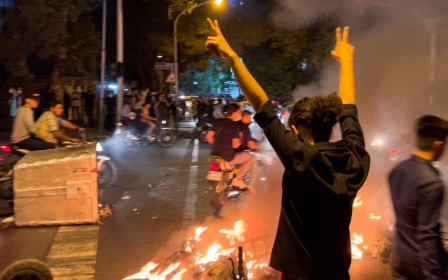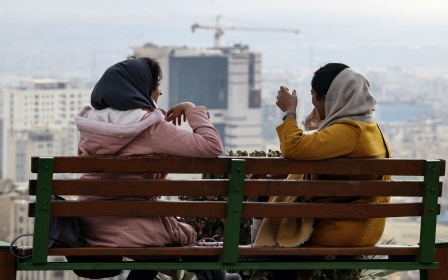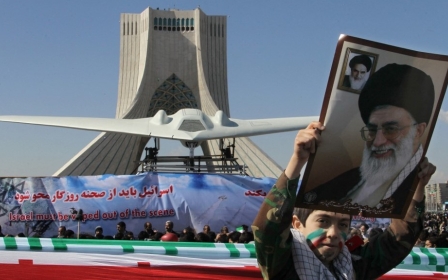Iran's new budget bill pours money into security and military sectors

In January, in the heart of Tehran, Iranian legislators were busy holding meetings discussing the new year's budget bill.
The streets were still reeling from months of brutal crackdown on anti-government protests, people were suffering from severe gas cuts amid a biting winter, and reports were emerging of workers taking their own lives due to worsening living conditions.
However, even as Iranians struggle to survive years of an unrelenting economic crisis, the bill proposed cuts in the health and public sectors, and granted an increase in the budget of military and security forces.
Lawmakers on 22 January approved the outlines of the budget bill, submitted by conservative President Ebrahim Raisi, for the Iranian year beginning on 21 March.
Increased brutality, increased budgets
New MEE newsletter: Jerusalem Dispatch
Sign up to get the latest insights and analysis on Israel-Palestine, alongside Turkey Unpacked and other MEE newsletters
The annual increase in the security and military forces' budget is not something new in Iran. However, this year, it has coincided with the last sparks of the months-long anti-government protests that rocked the country after the death of 22-year-old Mahsa Amini in police custody. The Iranian-Kurdish woman had been detained for not wearing the hijab properly.
"The government is very audaciously laughing in the face of Iranians," an economist living in Tehran told Middle East Eye on condition of anonymity for fear of reprisal by security forces.
"The police first killed an innocent young girl in custody and then killed those who protested against that incident. Now they are being [granted] a budget increase," the economist added.
Over 500 protesters have been killed by police and the Islamic Revolutionary Guard Corps (IRGC) since Amini's death on 16 September 2022, according to Human Rights Activists News Agency (HRANA).
The increase the economist references is a 44.5 percent rise in the country's police budget, included in a 40 percent increase of the total budget.
"In this economic situation, the government's best decision for next year's expenditure would have been a higher salary increase for lower-income citizens, allocating more funds to the public sector and proposing financial campaigns to support the vulnerable. But instead, more is given to police forces," the economist said.
Moreover, the proposed increase in the salaries of government workers is only 20 percent, while the government foresees a 40 percent annual inflation for the next Iranian year.
"We see that once again, the government have sided against the people," the economist added.
Security forces, military and other winners
Apart from the police, other forces that have been active behind the scenes in the brutal crackdown on Iranian citizens have also gained a share from the Raisi administration's generosity.
The Ministry of Intelligence was granted a 43 percent increase in next year's budget.
'This year's budget will make people poorer, and this will lead to more social dissatisfaction'
- Iranian budget expert
However, this ministry is not the only intelligence organisation behind the systematically forced disappearance of dissidents and obtaining forced self-incriminating confessions. The IRGC's own infamous intelligence apparatus has long had a vital role in these practices.
So it has not come as a surprise to Iranians that the IRGC, the country's most powerful military and economic entity, would also enjoy a budget increase of 37 percent next year. However, two sources who spoke to MEE said that the actual budget increase for the IRGC would be much higher.
"Certain parts of the annual budget bill are kept secret from the public, and those parts are mostly related to the IRGC," said a reformist politician informed about the country's budget bill, who wished to remain anonymous.
The politician explained that the budget dedicated to the missile and nuclear programmes are among those secret funds.
Moreover, the IRGC would benefit from the increases granted to other military and public organisations.
"For example, there is a specific budget for the General Staff of the Armed Forces of the Islamic Republic of Iran, but no one knows how that money will be exactly shared between the official army and the IRGC," the source said.
According to the politician, even the slightest increase in the annual funds for the public sector also profits the IRGC since it owns shares in several public banks, petrochemical firms, refineries and pharmaceuticals, to name just a few.
Making people poorer
The increased budget for the police, army and the IRGC occurs as official reports show a sharp decrease in the consumption of meat and fruit among Iranians due to rising poverty. In October, local media reported that one-third of the country's 87.9 million population lived in extreme poverty.
Despite the experts' warnings about the deteriorating economic situation for millions of Iranians, the government decided to invest its oil income in entities defending it against a growing opposition.
A budget expert working for the Plan and Budget Organisation of the Islamic Republic of Iran told MEE that analysts and economists had warned the government about the impacts of spending billions of rials on military and security plans while ordinary citizens face difficulties in making ends meet.
"The budget plan that Ebrahim Raisi submitted to the parliament is very different from what the experts drafted and handed in to the government," the expert said.
"This year's budget will make people poorer, and this will lead to more social dissatisfaction, which the authorities must find a solution for.
"The budget draft for next year shows that the only solution the government could think of was giving more power to the police, security forces and armed services."
Middle East Eye delivers independent and unrivalled coverage and analysis of the Middle East, North Africa and beyond. To learn more about republishing this content and the associated fees, please fill out this form. More about MEE can be found here.




